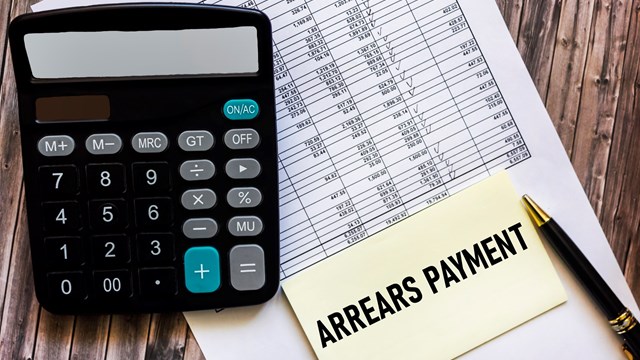
What would it be like if today's society was governed by laws set forth centuries ago and never updated? While some fundamental rules about not stealing things or hurting people might not change much, others would be in dire need of a facelift—giving women the right to vote and outlawing slavery come to mind, among many others. In deference to the need for a set of rules that change with the times, even the U.S. Constitution has been amended. The fact is that most rules need to be revisited and reexamined periodically to make sure they serve the needs and expectations of the population they're intended to govern.
This is no different in a co-op or condo association. The certificate of incorporation, the proprietary lease, bylaws, and, for condos, the declaration of covenants, conditions and restrictions (CC&R) are the main underlying documents that govern HOAs. They're like a contract among shareholders and unit owners, certifying that the residents will behave in a certain manner and adhere to certain regulatory expectations. Just as cities and states periodically revisit laws and regulations and alter them as needed, associations should re-examine their bylaws and rules to make sure they're fair, enforceable, and relevant to today's building community.
An Ongoing Process
"I think that one function of a good governing board is to constantly examine and reassess the scope and content of the community's governing documents," says Thomas V. Giaimo, Esq., an attorney based in Rumson. "It's a continuing and implied duty upon the governing board. The same goes for the community's rules and regulations. Those rules should be under constant evaluation for clarity, fairness and improvement."
Giaimo also says that periodic reexamination of rules and regulations by the board shouldn't be limited to decades-old HOAs. It's just as important for newer associations who've been given their set of governing documents by the community's sponsor or developer.
"These documents are typically boilerplate and do not necessarily reflect the community's true nature, character and temperament," Giaimo says. "New communities and their governing boards typically want to revise the developer's set of governing documents in order to more accurately reflect the community's needs and character. Certain communities will decide that they want to be more vigilant, and insist on strict compliance with the provisions contained in their governing documents."
"Other communities evolve over time with a temperament to be more tolerant of minor deviations from the community's governing documents, including rules and regulations," Giaimo continues. "In fact, over the last decade, we've seen a line of decisions from the courts indicating that communities and their governing boards must tolerate minor noncompliance with the governing documents, as long as it doesn't have a substantive and detrimental impact on the community."
Changing the Rules
In addition to reflecting the current needs of an association, Giaimo says that other legitimate reasons for changing rules and regulations might be to help the board manage the association more efficiently and cost-effectively, or to correct an inherent conflict with other provisions within the documents. Compliance with recently enacted legislation is still another reason for boards to make changes.
Some examples of these types changes include things like increasing or decreasing the monetary penalty the board can impose for rule infractions, or altering the parameters of the association's regulations governing pet ownership. While most proprietary leases require board approval for such transactions, a building's demographics may have changed over the years and shareholders might be less inclined to favor such a restriction. Changes in voting procedures and policies are also an important consideration when reviewing governing documents.
According to Dennis Estis, an attorney with Greenbaum Rowe Smith & Davis LLP in Woodbridge, "One example of why a board might wish to amend its bylaws is if the originals said something like, 'Any expenditure by the board over $5,000 must be approved by three-quarters of the unit owners.' This amount is a woefully low threshold, and it is almost impossible to get three-quarters of all unit owners to approve anything. If a provision like that were to remain in the bylaws, it might prevent the board from taking any action, and the condominium could deteriorate as a result."
Last year, in Denver, Colorado, theJefferson County District Court ruled thata condominium association can prohibit smoking in their four-unit building.The Heritage Hills #1 condominium owners association amended its bylaws to ban smoking after an owner complained about smoke seeping into her unit. The district court upheld the bylaw change, stating that secondhand smoke "constitutes a nuisance [similar to] extremely loud noise."
So, therefore, "one might also wish to amend the rules and regulations to deal with new issues that may arise," adds Estis. "There may not be a provision in the rules and regulations that prohibits someone from utilizing the clubhouse after a certain time. In order to protect that part of the common elements, the board may choose to bar its use after 10 p.m., for example."
Making the Change
When the government wants to pass an amendment to the Constitution, the first method is for a bill to pass both houses of the legislature by a two-thirds majority in each house. Once the bill has passed both houses, it goes on to the states for their approval. This is the route taken by all current amendments. Because of some long outstanding amendments, Congress normally imposes a time limit (typically seven years) for the bill to be approved as an amendment.
It may not require approval from entire states and both houses of Congress, but changing proprietary leases, bylaws and board rules can sometimes feel like an epic legislative undertaking. And like getting a law passed in Congress, changing a rule or regulation can be a long haul—even if the how-to's are spelled out explicitly for the board and residents.
For example, who votes and how many votes are needed depends on what document is being altered—and the protocols are set forth in the governing documents themselves.
"It's unusual for an association board to seek to amend either the master deed or the certificate of incorporation," says Estis. "The bylaws can be amended, but it usually requires a super majority of the unit owners to be approved."
Estis adds that there is no set time for re-visiting the bylaws and rules and regulations. Usually changes are proposed because a particular situation arises which requires action. "I certainly would recommend that boards should review their bylaws and rules at least every five years—but this does not mean that changes must be made," he says.
If it is time for a change, or if a situation has arisen that requires a new rule, the process is more or less the same from association to association.
"To change a bylaw, the board would put an amendment before the community or the building," says David Byrne, an attorney shareholder, who is a partner and chair of Stark & Stark's community association group in Lawrenceville. "The amount of votes you need depends on the master deed or bylaws; you may need two-thirds approval, 100 percent approval, 75 percent, two-thirds of a quorum, and so forth. It just really depends on the documents that you have set up initially."
In addition, adds Giaimo, as a precondition to being valid, binding, and enforceable, most major amendments to an HOA's governing documents must be recorded in the office of the County Clerk where the community is located.
The People's Choice
According to Estis, if your board has doubts as to whether or not a proposed new rule or rule change is a good idea, it might be wise to wait on trying to get it set in stone. "It's worth remembering that unit owners have the added protection of needing a super majority vote to amend the bylaws or master deed," says Estis. "But that's not the case with the rules and regulations—so when in doubt, a board should not attempt to unilaterally amend its bylaws or rules. Unit owners purchased knowing the rules, and now all of a sudden, a change is proposed—and people generally do not like change."
That said, Estis says that most amendments are the result of actions by the board. However, unit owners can request that a meeting of the association be held to consider a specific amendment to the bylaws. A certain percentage of the unit owners may need to be present to hold such a meeting.
So what happens if a proposed amendment or new bylaw is rejected by a majority of residents, or doesn't receive the necessary support to be ratified? It's always a possibility—and if it happens, a board can resubmit the recommended change again at a later date.
"The biggest obstacle to getting something changed is not opposition," says Karim G. Kaspar, a senior counsel with Lowenstein Sandler PC in Roseland. "It's apathy. By not voting, it's a negative vote. People don't care to vote, and the board has a tougher burden just getting people to respond. If they don't pass the percentage, the documents don't get amended."
Alternatively, the board does not need to rely on the community when making changes to their own rules for the association.
"The governing documents are created—and can be changed—by the people," explains Kaspar, "But you can't unilaterally change the rules set by your board. For instance, the governing documents may say that pets are permitted in accordance of approval by the board—but the board may only permit dogs under 40 pounds. They don't need membership approval [for that limitation.]"
Change with the Times
"Typically as a community ages, the membership comes to realize, value and enforce the rules that provide for and insure the quality of life they're seeking," says Giaimo. As long as it's done properly and fairly with an eye for what's reasonable and enforceable, amending your HOAs rules need not be a long, torturous process. It's something that needs to be attended to regularly—just like building repairs and financial reviews. With cooperation and consideration, it can be just as routine.
Lisa Iannucci is a freelance writer living in Poughkeepsie, New York and a frequent contributor to The New Jersey Cooperator.






16 Comments
Leave a Comment